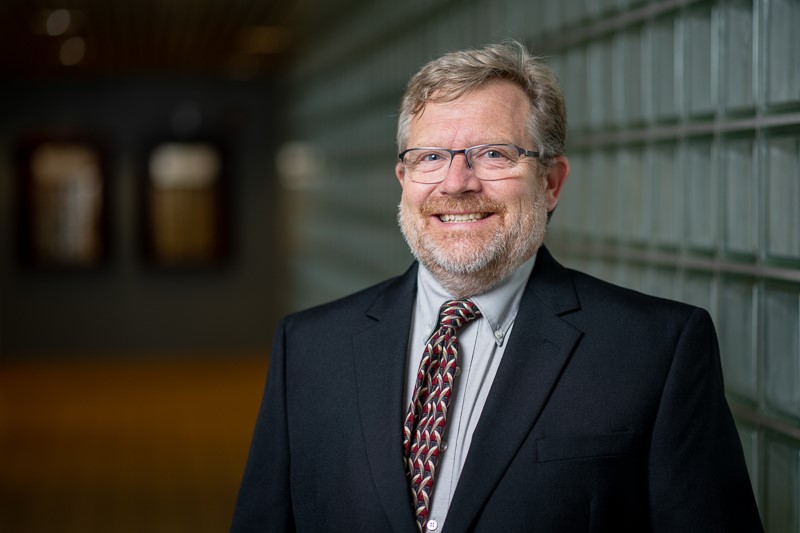We’re very happy to announce that Travor C. Brown, an alumnus of both our Master and PhD programs, has been appointed as the Interim Dean of Memorial University’s Faculty of Business Administration.
Travor is a Professor of Labour Relations and Human Resources, and a former President of the Administrative Sciences Association of Canada (ASAC). He has taught at Memorial University, the University of Toronto, University of Ulster and University of Otago. Since joining Memorial University, he has also served as the Associate Dean (Research) and the Director of the Master of Employment Relations program. Travor has also been appointed to the provincial roster of arbitrators.
We had the opportunity to chat with Travor about this new milestone in his career; how his time at the Centre prepared him for the world of work, both in industry and academia; and the best advice he’d give to future students to help them maximize their experience at the CIRHR. You can check out our full interview below!
 First, congratulations on your appointment as interim Dean!
First, congratulations on your appointment as interim Dean!
Thanks so much – I sincerely appreciate it, and I couldn’t be happier to be working in this faculty with these students, staff, and colleagues.
Would you be able to share some thoughts on this new milestone in your career — why is it particularly meaningful to be the interim Dean of Memorial University’s Business Faculty?
What’s always stood out to me about Memorial University’s Faculty of Business is that we’ve always had an equally strong focus on not-for-profit, for-profit, public sector and social enterprise. You can see this in the organizations we work with in terms of our research, and where are graduates are employed. We’re a business faculty that speaks to all organisations, is grounded in all organizations, and has students and graduates employed in all organizations. Undergraduate students in our co-operative commerce program have the option to complete three work terms, allowing them to alternate between classes and employment in the community, and we have many other opportunities for students in all programs to engage with the community. It’s this kind of active, hands-on experience that really drew me to this position.
You completed your master’s and PhD at the CIRHR – what do you recall from your time at the Centre?
One of the things that stood out for me in my time at the Centre as both a master’s and PhD student — something that helped shape my career — was the interdisciplinary nature of the program which provided exposure to issues from a management, labour and economics perspective.
Additionally, it was an incredibly supportive environment, and one that I’ve tried to model in my career when working with students and staff. At the Centre, I recall working with incredible faculty and staff. Many of the players have changed since then — many staff have retired — but building meaningful relationships with the staff, faculty, librarians and students was definitely a highlight for me, and it’s something I’ve tried to bring to every program I manage.
If something along the way piques your interest, like a unique course or research project, explore it.
Don’t be afraid to look over the fence into the other backyard. You’ll learn a great deal.
You’re not the first person to say that – when I get the chance to chat with alumni, they often express their appreciation for the people at the Centre who made their academic experience a great one… Were there any specific skills or practices you learned at the Centre that you took with you into the world of work?
Not to sound too generic, but I learned the importance of addressing “people” issues. Take the pandemic, for example — the challenges organizations face are centered around people, talent management, and retention. When I completed my master’s degree, I went into the high-tech sector where it became clear that you can easily replicate tech and products, but people-management is much more complex and vitally important to the overall function of the operation.
What I also learned at the Centre is that, although labour and management can have differing goals and opinions, they can still work together. Those two were two big take-aways in terms of career impact.
What advice would you give students who are coming into the program, or just completing their studies and entering the world of work?
The most important advice I have for people entering the program is to take advantage of every experience, and take every opportunity to work with others and expose yourself to different perspectives. If you are someone who is more pro-union or pro-management, work with someone with a different perspective who may challenge your point of view — this helps you learn, grow, and better understand the issues at play.
My other piece of advice would be to avoid locking yourself in too early. Don’t assume you know exactly what you want to do when you finish your degree. If something along the way piques your interest, like a unique course or research project, explore it. Don’t be afraid to “look over the fence into the other backyard.” You’ll learn a great deal.
In terms of career advice, pick something that really speaks to you. Understand what your strengths are and focus on work that’s meaningful and continues to build your skillsets. Don’t take a path based solely on what others think you should do — it has to make sense to you too.
And finally, are there any last thoughts you would like to share?
The CIRHR has always held a special place for me. It really was a critical foundation in my career. The learning environment at the Centre, and the connections and relationships I made while completing my master’s and PhD, helped me become the person I am today.


